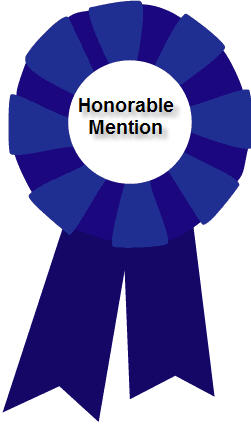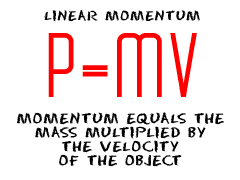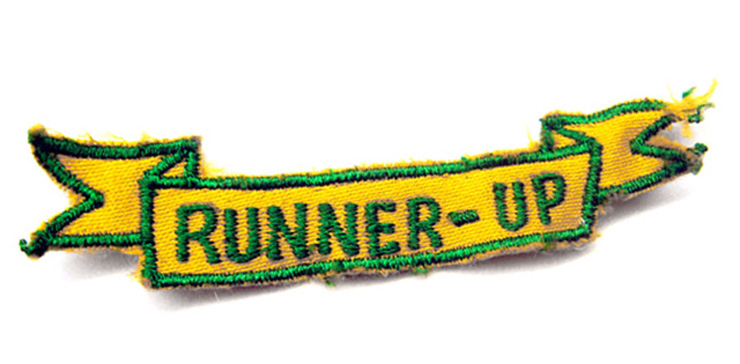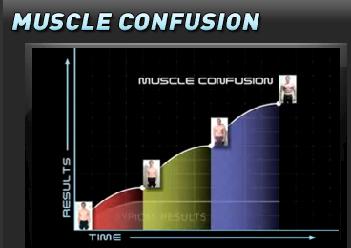Every profession (and I’m using that term loosely in reference to my own) has terms, sayings, whatever, that make people in that profession cringe every time they hear them.
These are mostly made up pseudo science terms that have a BS definition. Sometimes these are real scientific terms that are bastardized to mean something other than what they actually mean, in the rest of the world.
Honorable Mention: Momentum
Momentum as used in “fitness”- think Planet Fitness, no more than a 50lbs dumbbells we don’t judge unless you unless you dead lift, grunt or try to do anything worthwhile, in which case you don’t fit our mold and we judge you to be a “Lunk”.
Don’t believe me:
So yeah, they are “Judgment free” as long as you don’t do stereotypical “meat head” things…but totally judgement free for everyone else.
Any way one of the most frequent things you’ll hear from the patrons and staff from this type of establishment is some variation of the following, “You should lift the weights slowly so as not to use momentum“.
Could you define momentum? Do you even know what this means?
I can and do, because of this thing called…..Physics….: Momentum: Mass X Velocity
So if I have an object , lets say, ohh….. I don’t know……. a barbell………that can be the mass
and I move the barbell so it has a speed of movement or velocity that kids is MOMENTUM…Momentum is essentially mass in motion…
So Einstein, it’s pretty obvious that every time we move a weight we are using momentum…we don’t have a choice in the matter. We “use” momentum EVERYTIME we create any movement what-so ever….
First Runner Up: Intensity
Ever hear this before, “We work at a high intensity in boot camp” or “that was an intense workout”?…
I’m sure you have and we all know what it means…but it’s (usually) wrong…just flat out wrong.
Why?????
Because exercise intensity is a measure of your maximum ability. It’s a numerical percentage, not a feeling.
If you go for a run at and your heart rate averages 150bpm (beats per minute) and your max heart rate is 200bpm your intensity was 75%
150/ 200= .75……75%
If your maximum bench press is 315lbs and you bench press 225lbs for 1 rep you worked at an intensity of 71%
225/315= .71……71%
If you come back and bench 225 for 3 reps on the next set your intensity is?????
THE SAME
It’s the same damnit..it’s not more intense because it was harder. You performed the exercise at the SAME intensity, just did more work.
So called “high intensity training” programs where you do the “perfect rep” in a slow and controlled fashion often claim to be “more intense” (and they say that whole “we don’t use momentum to lift the weights jack-assery too)..but the godfather of powerlifting and one of the legitimate Yoda’s out there, Louie Simmons, dispelled this in his article Hit…or Miss
First let’s look at the concept of intensity. Apparently H.I.T. views it as a feeling, like a pump, a term bodybuilders made popular. Is it a scientific term? No.- Louie Simmons
Intensity is about percentages, numbers, math….not feelings.
Runner Up: Tone
“I just want to Tone up” ……“This insert jack ass thing on a bosu ball will Tone your core”
Ohhhhhhhhh, reaaaaaaaaaally?
Tone, how it’s commonly used in this bizz is made up. You cannot lift 3 sets of 10 with 5lbs weights and “tone” up a muscle.
Tone comes from the actual (read used in science and has a universal understanding) Tonus. Which is essentially the electrophysiological state of a muscle. The continuous, involuntary, firing of neurons at a low-level to keep the muscle ready to do work. Tone, in a scientific sense is what keeps us upright and our hearts beating.
It has NOTHING to do with how the muscle appears.
Mark Rippetoe described this disconnect in Practical Programming:
“The modern fitness industry’s concept of “toning” muscles is specious—it might sound cool, but it lacks any tangible and definable meaning. The term “muscle tone” or tonus describes an electrophysiological phenomenon, a measure of ionic flow across muscle cell membranes. It can be thought of as the muscle’s readiness to do anaerobic work. The more fit the muscle, the more electrophysiological activity it exhibits at rest. Lack of exercise leads to poor tone, aerobic exercise improves tone a little bit, low-intensity weight training improves tone more, and high-intensity training improves tone the fastest.
Lets use a visual comparison: Kim K. vs. Marissa Miller vs. Jessica Biel
OK, so first things first, this is not a “which is better” comparison.
They all look really good in a bikini (probably because they get paid lots of cash to look that way, but I digress) we know this. Point is, what is “Tone“?
Kim obviously is a little softer than the other two, she has more body fat and probably less muscle than Marisa, but definitely less than Jess.
Marisa is the skinniest of the group and probably has the lowest body fat and is second in muscle.
Jess obviously has the most muscle of the three and probably is in the middle in terms of body fat.
So what is “Tone“?
In physiological terms Jess, having the most muscle is probably also the strongest and has the best muscle tonus– electrophysiological activity across the muscle cell membranes. But is she the most “Toned” in fitness terms?
I’m guessing most would answer no, Marisa is.
Now, if Kim were to simply stay at her current body fat level and workout some her muscles would get harder because of increased TONUS– more activity across them. But would she look like Marisa?
Obviously not….Why?
Her body fat would be too high to uncover the harder muscles…..
So what does this little experiment tell us? TONE doesn’t mean jack….stuff is made up.
It’s not about who has the most muscle or fat or whatever…it’s about a combination of the two.
If you’re looking for fitness style “Tone” you must do some combination of gaining muscle and losing fat. It’s not a magical process that happens to your muscle just because you began to exercise.
Finally we make our way to the nights GRAND CHAMPION!
Grand Champion of Horrible fitness terminology: Muscle Confusion
Let’s just throw this out there, the term “muscle confusion” is totally “as seen on TV” made up bullshit…
It is in NO WAY a scientific term. It was made up to sell a product, and now it’s in the lexicon. People, in this business even, use this and think they sound smart. Do some quick searches in Pubmed or Google Scholar for “Muscle Confusion” you’ll find a whole lot of :
Nothing
Ohh wait, here’s a nice…. ADVERTISEMENT! ………….Yea for truth!…
Here’s a clue muscles don’t get confused people.
They only know length and tension, they don’t have brains with intelligence and critical thinking skills to be confused. They don’t decide…only do.
When new physical tasks are difficult it’s not because you “confused” the muscle, it’s because the task was one of the following:
- A new movement pattern, the BRAIN must learn to coordinate these new muscle actions.
- An overload pattern: more tension, time under tension, speed of movement, energy system, etc.
Not because the muscle was somehow “confused”. You may have been, your muscles were not.
If you work in the bizz of training people, please either STOP using these terms or use them correctly…and if you hear your local, I went to a two-day certification this week so now I’m an expert trainer at the local Globo gym say these…stay away, very far away.













